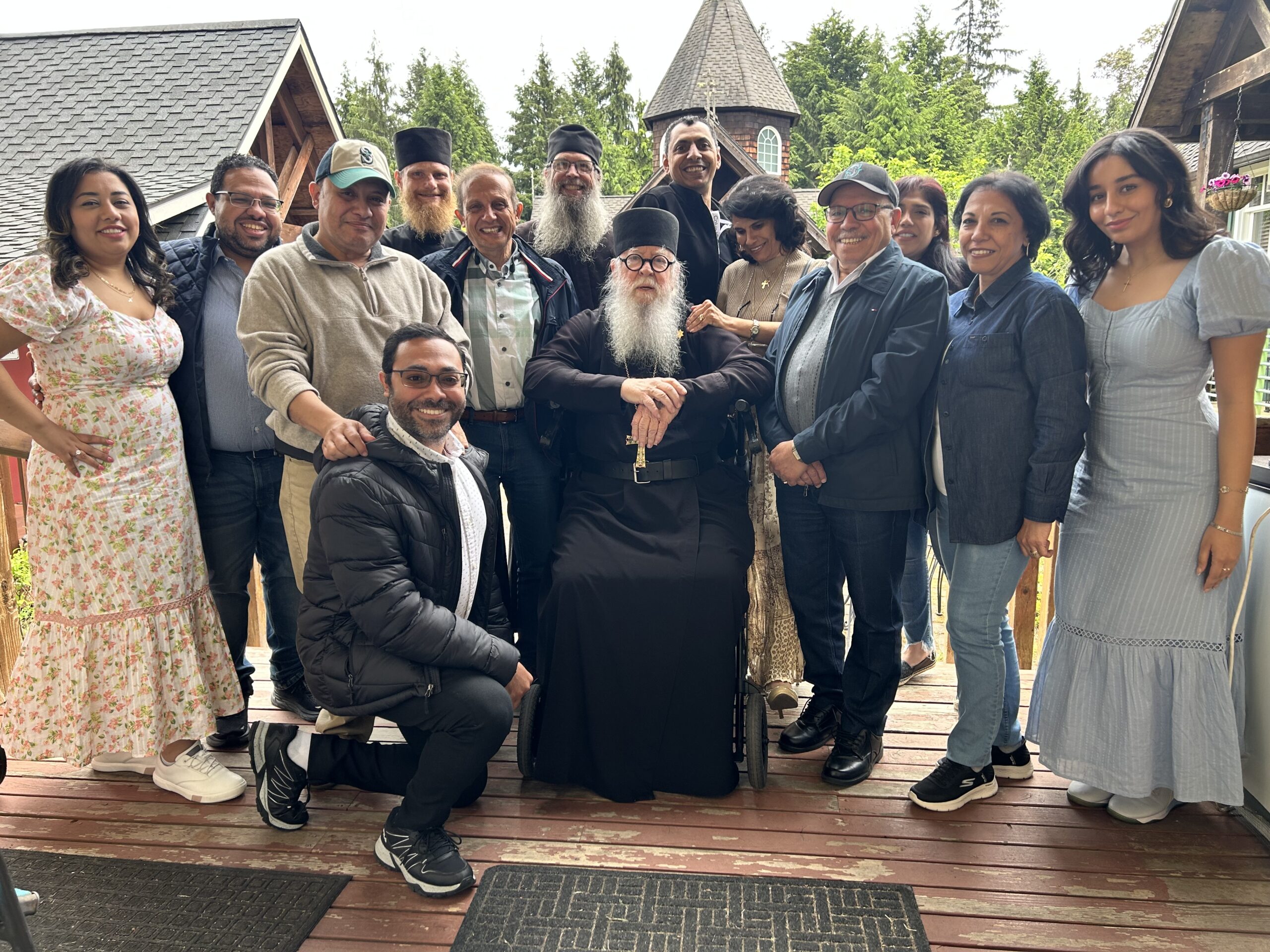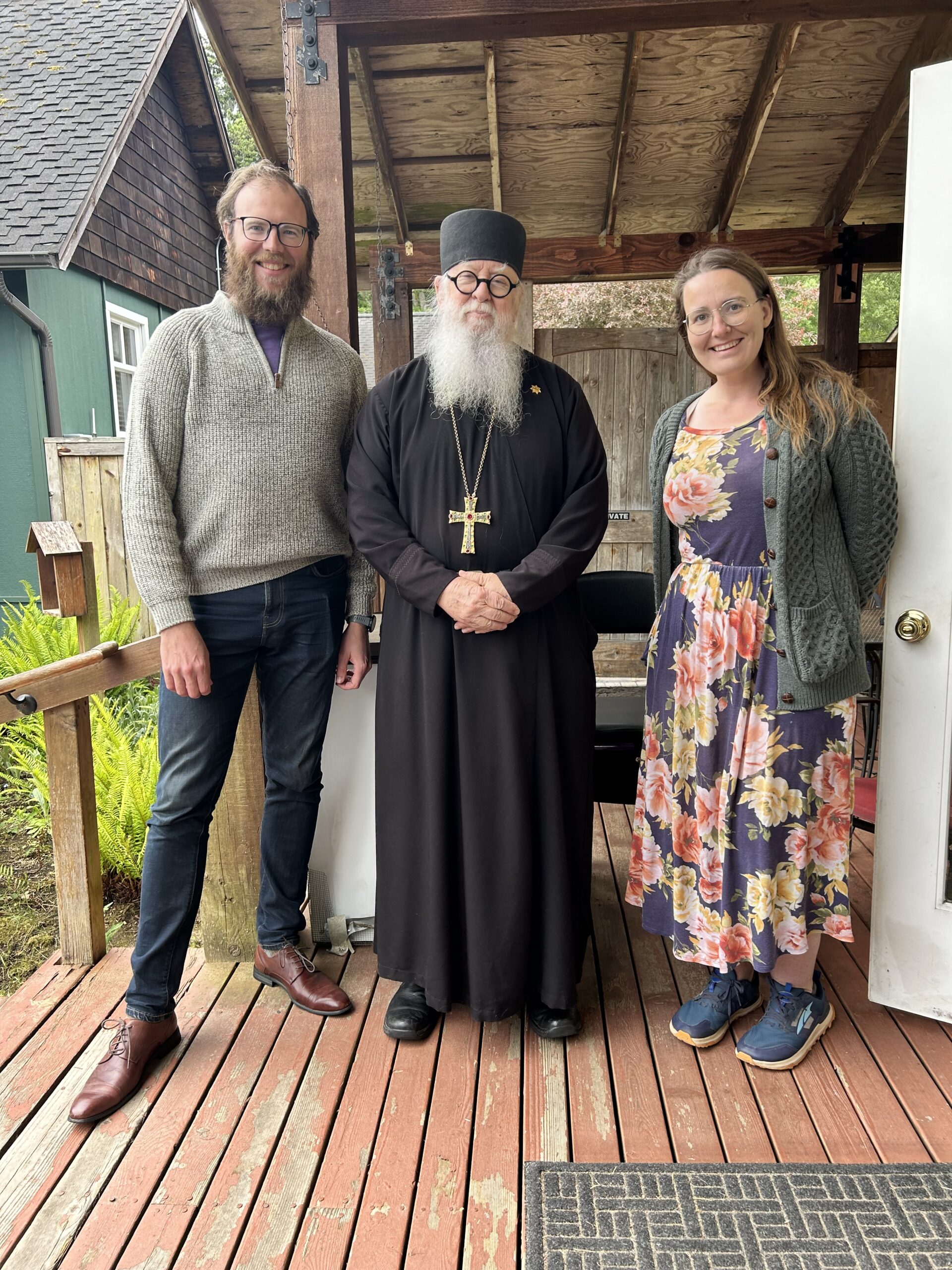Sheep Recognize the Voice of the Comforting Shepherd

In the Gospels, Christ describes Himself to his disciples as “The Good Shepherd,” Who willingly lays down his life for His sheep. Like any good shepherd, Jesus lovingly calls his sheep, and bids us to come forth, follow Him, and enter into the “green pastures” of eternal life. There is no intimidation, but only the loving sound of a shepherd, whose sheep recognize a voice that is comforting, and draws them into a safe place.
Bishops and priests, as representatives of the Good Shepherd, are called, as icons of the Christ they serve, to act in the very same manner. Bishops and priests are not, if they are true to their vocations, to lead by intimidation, but with pastoral love, and gentle shepherding. There is no place in the Theology of Priesthood, in the Orthodox Church, for shepherding by intimidation. Bishops, abbots, and priests, in the Orthodox Church, have never been, as was common in the Latin Church, “Lords” over their people, but, rather, servants, and loving shepherds.
In Orthodox monasteries, where the abbot occupies his office for life (much like a bishop,) his rule is one of fatherly leadership. The abbot does not give commands to his monks, to do this, or that, but, rather, suggests. The obedience of the monks is, therefore, not one of obedience as to an overlord, but obedience to a loving father, because the monk is loved by his abbot, and, in return, loves his abbot.
Christ even directed husbands to love their wives in much the same manner, for he told husbands they must love their wives, just as Christ has loved His Church. No medieval lordship over an Orthodox Christian wife. Husbands, like bishops, abbots, and priests, are to follow Christ’s example, and imitate the Good Shepherd. Within Orthodoxy, there is no room for abusive husbands, tyrannical bishops, and clericalist priests.
With love and blessings,
Abbot Tryphon

Sunday May 26, 2024 / May 13, 2024
Fourth Sunday of Pascha: The Paralyzed Man. Tone three.
Translation of the relics of Martyr Abramius of Bulgaria (1230) (movable holiday on the 4th Sunday of Pascha).
Righteous Tabitha (1st c.) (movable holiday on the 4th Sunday of Pascha).
New Martyr Theodore of Bizantium, who died at Mitilene (1795) (movable holiday on the 4th Sunday of Pascha) (Greek).
All Saints of Euboea (movable holiday on the 4th Sunday of Pascha) (Greek).
Virgin-martyr Glyceria at Heraclea (141) and with her Martyr Laodicius, jailer of St. Glyceria.
New Hieromartyrs Basil, Alexander and Christopher, Hieromartyr Macarius and Martyr Sergius (1922).
103 New Hieromartyrs of Cherkassk (20th c.).
Righteous Virgin Glyceria of Novgorod (1522).
Translation of the relics of St. Macarius, archimandrite of Obruch or Kanev (1678).
Martyr Alexander of Rome (298).
St. Pausicacius, bishop of Synnada (606).
St. George the Confessor of Constantinople, with his wife and children (ca. 842).
Venerable Euthymius of Athos the translator (1028) (Georgia).
Venerables Amphilochius (1452), Macarius (1462), and Tarasius (1440), abbots, and Theodosius (15 c.), monk, of Glushitsa Monastery (Vologda).
St. Servatius, first bishop of Maastricht (384).
Martyrs killed by the Latins at the Iveron Monastery on Mt. Athos (Georgia).
Monkmartyr John of the Iveron Monastery on Mt Athos (Greek).
St. Sergius the Confessor of Constantinople (9th c.) (Greek).
Venerable Nicephorus, priest of the monastery of Ephapsios (Greek).
Hieromartyr Alexander of Tiverias. (Greek).
St. Leander of Seville (600).
The Scripture Readings
Luke 24:1-12
He Is Risen
24 Now on the first day of the week, very early in the morning, they, and certain other women with them, came to the tomb bringing the spices which they had prepared. 2 But they found the stone rolled away from the tomb. 3 Then they went in and did not find the body of the Lord Jesus. 4 And it happened, as they were greatly perplexed about this, that behold, two men stood by them in shining garments. 5 Then, as they were afraid and bowed their faces to the earth, they said to them, “Why do you seek the living among the dead? 6 He is not here, but is risen! Remember how He spoke to you when He was still in Galilee, 7 saying, ‘The Son of Man must be delivered into the hands of sinful men, and be crucified, and the third day rise again.’ ”
8 And they remembered His words. 9 Then they returned from the tomb and told all these things to the eleven and to all the rest. 10 It was Mary Magdalene, Joanna, Mary the mother of James, and the other women with them, who told these things to the apostles. 11 And their words seemed to them like idle tales, and they did not believe them. 12 But Peter arose and ran to the tomb; and stooping down, he saw the linen cloths lying by themselves; and he departed, marveling to himself at what had happened.
Acts 9:32-42
Aeneas Healed
32 Now it came to pass, as Peter went through all parts of the country, that he also came down to the saints who dwelt in Lydda. 33 There he found a certain man named Aeneas, who had been bedridden eight years and was paralyzed. 34 And Peter said to him, “Aeneas, Jesus the Christ heals you. Arise and make your bed.” Then he arose immediately. 35 So all who dwelt at Lydda and Sharon saw him and turned to the Lord.
Dorcas Restored to Life
36 At Joppa there was a certain disciple named Tabitha, which is translated [b]Dorcas. This woman was full of good works and charitable deeds which she did. 37 But it happened in those days that she became sick and died. When they had washed her, they laid her in an upper room. 38 And since Lydda was near Joppa, and the disciples had heard that Peter was there, they sent two men to him, imploring him not to delay in coming to them. 39 Then Peter arose and went with them. When he had come, they brought him to the upper room. And all the widows stood by him weeping, showing the tunics and garments which Dorcas had made while she was with them. 40 But Peter put them all out, and knelt down and prayed. And turning to the body he said, “Tabitha, arise.” And she opened her eyes, and when she saw Peter she sat up. 41 Then he gave her his hand and lifted her up; and when he had called the saints and widows, he presented her alive. 42 And it became known throughout all Joppa, and many believed on the Lord.
John 5:1-15
A Man Healed at the Pool of Bethesda
5 After this there was a feast of the Jews, and Jesus went up to Jerusalem. 2 Now there is in Jerusalem by the Sheep Gate a pool, which is called in Hebrew, Bethesda, having five porches. 3 In these lay a great multitude of sick people, blind, lame, paralyzed, [c]waiting for the moving of the water. 4 For an angel went down at a certain time into the pool and stirred up the water; then whoever stepped in first, after the stirring of the water, was made well of whatever disease he had. 5 Now a certain man was there who had an infirmity thirty-eight years. 6 When Jesus saw him lying there, and knew that he already had been in that condition a long time, He said to him, “Do you want to be made well?”
7 The sick man answered Him, “Sir, I have no man to put me into the pool when the water is stirred up; but while I am coming, another steps down before me.”
8 Jesus said to him, “Rise, take up your bed and walk.” 9 And immediately the man was made well, took up his bed, and walked.
And that day was the Sabbath. 10 The Jews therefore said to him who was cured, “It is the Sabbath; it is not lawful for you to carry your bed.”
11 He answered them, “He who made me well said to me, ‘Take up your bed and walk.’ ”
12 Then they asked him, “Who is the Man who said to you, ‘Take up your bed and walk’?” 13 But the one who was healed did not know who it was, for Jesus had withdrawn, a multitude being in that place. 14 Afterward Jesus found him in the temple, and said to him, “See, you have been made well. Sin no more, lest a worse thing come upon you.”
15 The man departed and told the Jews that it was Jesus who had made him well.
